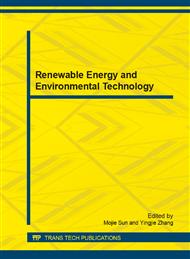p.2721
p.2730
p.2740
p.2747
p.2753
p.2757
p.2762
p.2769
p.2777
Post-Evaluation of Electric Power Construction Project Based on Grey Rough Set
Abstract:
The post-evaluation of electric power construction project is an important link, which is necessary in electric grid projects cycle. An advanced method of post-evaluation is proposed by combining Rough Set (RS) theory and Grey System (GS) theory, defined as Grey Rough Set (GRS). According to post-evaluation project experiences, this paper provides the method of index screening by attribute reduction and weight decision.
Info:
Periodical:
Pages:
2753-2756
Citation:
Online since:
October 2013
Authors:
Price:
Сopyright:
© 2014 Trans Tech Publications Ltd. All Rights Reserved
Share:
Citation:


